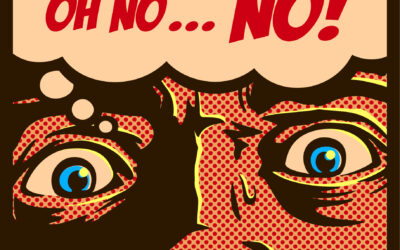What is EMDR?
Standing for Eye Movement Desensitization and Reprocessing, EMDR is a specialized kind of therapy that allows traumatic memories to become desensitized, losing some of their emotional intensity. EMDR is an 8 step process. That process does NOT begin with the trauma processing itself. Instead, the therapist ensures that you have a stockpile of effective coping skills and resources to aid you in the trauma processing experience prior to beginning any sort of trauma processing. The goal throughout the therapy is to provide relief to trauma triggers and not to re-traumatize you in the re-telling of experiences. Only once a clear plan has been developed and coping skills are in place will the therapist guide you through the re-processing experience. Re-processing often involves specialized eye movements that the therapists guides you through while you simultaneously access a specific traumatic memory or severe fear. The two elements use both halves of your brain to more effectively neutralize the negative emotions and desensitizing the memory. The goal of EMDR is not to erase the memory, it’s to reprogram it so that it’s less traumatic.
What conditions can EMDR help with?
There are a lot of different situations in which EMDR can be helpful, making it popular for therapists and counselors around the world. It is best known for helping those clients who are recovering from a traumatic experience or those diagnosed with Post-Traumatic Stress Disorder (PTSD). However, research is indicating that EMDR may also be helpful with conditions such as anxiety/panic disorders, grief, severe fears or phobias, and even “common” problems such as self-esteem issues or anger issues.
How is it helpful with trauma?
There are a lot of ways the EMDR can be helpful to dealing with trauma. This specific kind of therapy can not only help someone heal from a trauma experience, but also improve their quality of life. For example, EMDR can be helpful with:
- Identifying the root memory: One key step in the EMDR process is uncovering where the trauma comes from, which can be helpful in understand when, where, and how it started.
- Processing the memory in a healthy way: EMDR is all about seeing the memory from a different point of view in terms of making it less traumatic and overwhelming. This perspective shifting plays a major role in the healing process.
- Improving your quality of life: EMDR tends to be helpful in reducing trauma triggers and reducing the impacts of trauma in your life.
What are the risks of EMDR therapy?
EMDR does not come without potential risks. Though EMDR tends to be gentle and stress-reducing, there is a potential risk of an increase in flashbacks, nightmares, or anxiety, usually in the short-term. Other memories may also resurface as trauma processing starts up that may be distressing. If you are in recovery from an addiction, EMDR processing may trigger feelings that, in the past, may have lead to a relapse. If you are a person in recovery (or actively use substances to cope with feelings), this will be something you should disclose to your therapist.
The EMDR therapists on the Star Meadow Counseling team will fully review the risks and benefits of EMDR therapy with you in helping determine if it is a therapeutic approach that might be a fit for you.
EMDR can offer real results for people dealing with trauma. For those looking for options alternative to traditional talk therapy, this may just be the right fit.
Want to read more from our blog? Check out one of these articles:
Negative Thoughts are Like Country Music
Imagine for a moment that the negative thoughts running wild in your brain played like a country song on repeat. Would any of the songs have titles like these? “She Don’t Think My Beard Is Sexy” “All Alone Again (In My Truck)” “My Guitar Only Has Three Strings”...
5 Questions to Uncover Your CORE VALUES
Core values are words that describe a person’s inner compass. Core values provide people with direction when they feel stuck, lost, or at a crossroads. They help you prioritize what’s really important in life. They reflect what gives a person their sense of meaning...
Quotes to Inspire Self-Acceptance
“You either walk inside your story and own it or you stand outside your story and hustle for your worthiness.” “The hardest challenge is to be yourself in a world where everyone is trying to make you be somebody else.” “The most beautiful people we have known...
Contamination Fears In a Contaminated World: What’s Appropriate And What’s Compulsive?
Covid, Measles outbreaks, Mokeypox- it can feel overwhelming to manage the constant barrage of new threats. For most people, a significant behavioral change is needed to ensure safety, but for people with OCD or health anxiety, where do you draw the line? What are...
Life Hacks For When Everything Feels Hard
Mental health challenges like depression, anxiety, and ADHD can make for difficult days. Ideally, with the right combination of therapy, coping skills, or medication, there won’t be so many hard days. But sometimes we hit a rough patch or experience a stressor or...
3 Unconventional Ways to Stop a Panic Attack
Panic attacks feel different for everyone, but typically include sensations like a pounding heart, sweating, a feeling of terror, constricted or rapid breathing, and feeling as though the room is closing in on you or spinning. Regardless of how they present, a...







